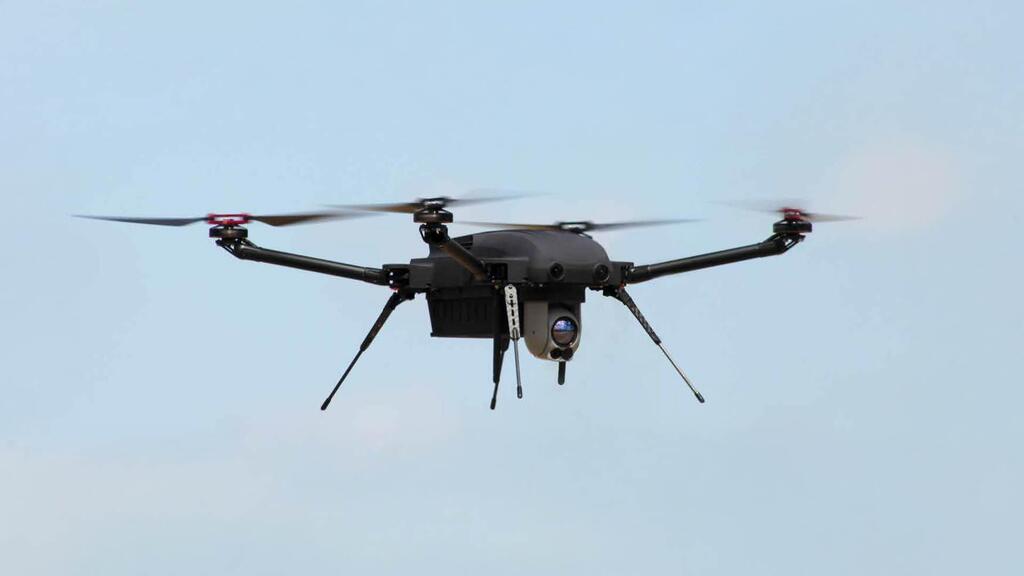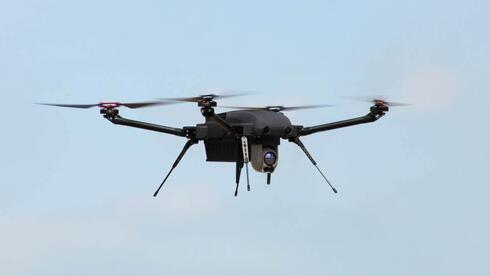
Combat-ready and camera-eyed: The X-Intra drone joins Israel’s arsenal
Elbit's newest war drone carries heavier payloads, deploys in minutes, and reflects battlefield lessons from Gaza.
The long-promised vision of drones delivering pizza to your doorstep remains mired in regulatory delays. Meanwhile, drones have firmly established themselves as tools of war. Flying Production, a subsidiary of Elbit Systems, has begun serial production of its new X-Intra combat drone, which promises enhanced battlefield capabilities.
One of its standout features is its ability to carry a payload of approximately 30 kilograms—unusually heavy compared to most drones on the market and more than twice the capacity of its predecessor, the Tzur drone, on which the X-Intra is based. Despite its large payload, the drone is compact enough to be stored disassembled in a padded bag that one soldier can carry. According to its developers, it can be deployed and operational within just two minutes.
Classified as a multi-mission drone, the X-Intra is designed to transport urgent supplies to combat zones, provide high-altitude visual intelligence via advanced cameras, and, when necessary, attack human targets using precision munitions.
Flying Production has not disclosed which clients have ordered the X-Intra. However, its existing drones—centered on the Tzur model—have become integral to the Israel Defense Forces' ongoing operations in Gaza and along the Lebanese border. Beyond Israel, the company has sold drones to several foreign militaries, although specific customers remain undisclosed. To date, its drones have logged more than 20,000 operational flight hours.
Based in the Rosh HaAyin industrial zone, Flying Production was acquired by Elbit in 2019 as part of its strategic push into the rapidly growing field of tactical combat drones. According to CEO Eyal Dahan, the combat experience gained from its earlier drones—including the Magni-X and TerminaTHOR—led to the decision to equip them with high-end electro-optical payloads (EOPs), some valued at around $500,000. These sensors are used for persistent surveillance and target acquisition.
Related articles:
In response to the lessons learned from prolonged urban combat in Gaza—and in anticipation of future deployments in similar environments—the Israeli defense establishment recently conducted a series of trials parachuting blood donations using the Tzur drone. The blood units were packaged in padded containers to ensure safe landings, with the goal of getting life-saving medical supplies to frontline units within minutes.
In recent months, the Ministry of Defense has issued over NIS 400 million (approx. $107 million) in drone procurement contracts to Israeli defense companies. These include Xtend, CopterPix, and Aerodrome. Elbit Systems, which developed several of the drones in collaboration with the Ministry, received around NIS 150 million of those orders.
This wave of drone procurement aims to address the acute shortages that emerged after the outbreak of war on October 7. At the start of the conflict, many IDF units—both regular and reserve—reported a critical lack of drones and had to turn to social media to solicit public donations. The defense ministry now plans to issue additional tenders to further expand its stockpile of locally made drones in response to surging operational demand.
